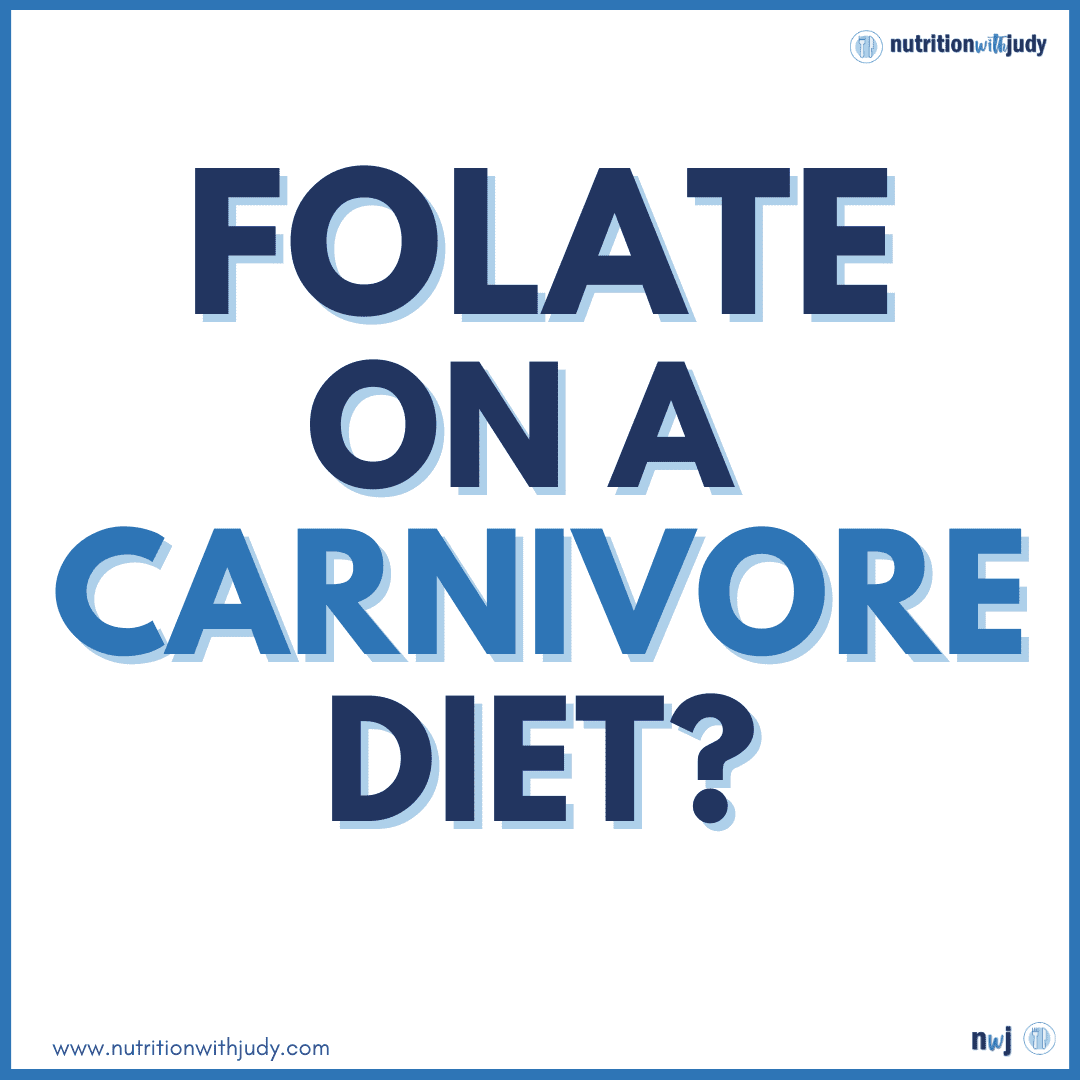

The Carnivore Diet and Folate Deficiency


The carnivore diet can be such an incredible healing modality, creating unique opportunities for individuals that are chronically ill or simply trying to optimize their health. While many of us already in the carnivore space understand the scientific backing and nuances of this way of eating, those that are unfamiliar or new to the diet commonly cite nutritional deficiencies as a concern. Nutrients such as vitamin C are usually at the forefront of this discussion. However, other nutrient concerns have also been voiced. Is folate deficiency something to worry about on a carnivore diet? Learn more about the role of folate in the body, the benefits it has, and if this is a genuine concern for those starting or already on the carnivore diet.
The Role of Folate In the Body
Folate, also known as vitamin B9, is a nutrient found in many foods that’s important for basic cell function and cell growth, helps make red blood cells and DNA, and is needed for a healthy pregnancy. It is a crucial nutrient during early pregnancy, helping reduce the risk of birth defects in the brain and spine. Folate is a water-soluble vitamin that can’t be stored in your body for long periods– it stores in the liver, tissues, and blood.
The Benefits of Folate
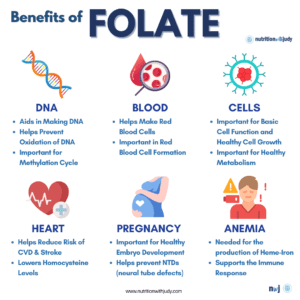

Since folate plays many roles throughout the body, it has a wide array of benefits, including:
- DNA: Folate is essential for creating DNA, preventing the oxidation of DNA, and is important for the methylation cycle.
- Blood: Folate helps the body create red blood cells and is critical for red blood cell formation.
- Cells: The nutrient is also important for basic cell function and healthy cell growth. Folate is an important cofactor for metabolizing essential amino acids.
- Heart: Healthy folate levels are associated with a reduced risk of cardiovascular disease and help lower homocysteine levels.
- Pregnancy: Folate is important for healthy embryo development and helps prevent neural tube defects (NTD).
- Anemia: A folate deficiency can lead to anemia as it is needed for the production of heme-iron and also supports the immune response.
Understanding Folate Deficiency
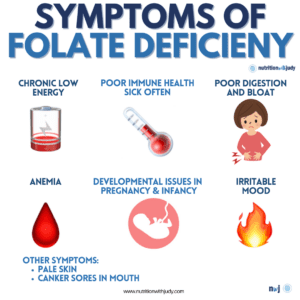

Folate deficiency can cause symptoms such as weakness, fatigue, neurological issues, diarrhea, pale skin, and mouth sores. It can lead to complications, especially during pregnancy. It can be caused by:
- Infection or health condition that causes inflammation, cancer, or sickle cell anemia
- Digestive disorders that cause malabsorption
- Excessive alcohol use
- Use of certain medications such as antacids, NSAIDs, contraceptives, estrogen, anti-diabetics, barbiturates, and methotrexate
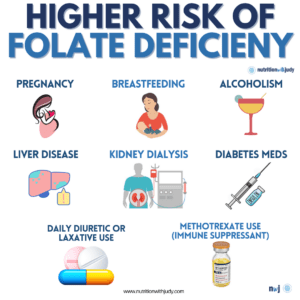

The synthetic version of folate is folic acid and is used in supplements as well as fortified foods. According to the CDC, only folic acid (not folate) was proven to prevent NTD birth defects, recommending that all women of reproductive age consume 400mcg of folic acid daily. The recommended daily allowance (RDA) for folate during pregnancy increases due to its role in nucleic acid synthesis. The Food and Nutrition Board (FNB) increased the RDA requirement to 600mcg per day during pregnancy.
Carnivore Diet Background
Before looking into the nuances of folate on a carnivore diet, let’s discuss what the carnivore diet is and some of the sought-after benefits it can offer.
The carnivore diet focuses only on animal proteins and fats, eliminating all other foods from the plant kingdom. It acts as the ultimate elimination diet and is a true zero-carb or nearly zero-carb way of eating. There are many variations within the diet, giving flexibility to individuals based on their specific health needs and wellness goals. While there are so many reasons why individuals may decide to try this way of eating, here are some of the main benefits. For a more in-depth look at the benefits of the carnivore diet, read our comprehensive guide here.
- Minimize plant anti-nutrients
- Avoid mycotoxins and aflatoxins
- Reduce glyphosate and pesticide exposure
- Reverse chronic illness from excess sugar
- Prevent fiber intake
- Avoid processed and inflammatory foods
- Enjoy the most bioavailable, nutrient-dense diet available
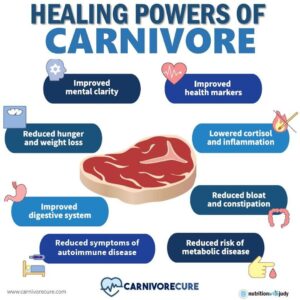

From autoimmune remission to maintainable weight loss, the carnivore diet is a powerful intervention for promoting root-cause healing or supporting individuals during their root-cause healing journey. Based on our clinical practice and emerging scientific data, there are so many reasons to try this dietary approach.
Folate On a Carnivore Diet?
Since there have been many discussions around folate, we find many clients on the carnivore diet starting to test their folate levels; some of them find that they are low. But, what were their folate levels before? Spinach is one of the highest food sources for folate but we also know about all of its anti-nutrients and less bioavailable nutrients. Other high folate foods include cooked chickpeas, lentils, edamame, boiled beans, soy flour, and turnip greens. Which begs the question, how often do Standard American Diet (SAD) dieters eat these foods? If high folate plant foods aren’t a consistent part of the diet, how do we know if we are sufficient in folate when we rarely test for folate?
Most people eating a carnivore diet tout they rarely get sick, their digestion improves, are rarely anemic (if you are, check for H. pylori, parasites, or low molybdenum status), and have improved mood. So, is this more of a case of correlation vs. causation? Could folate deficiency be due to a deeper root cause such as illness? Most of these illnesses subside on a carnivore diet.
For those that are pregnant, breastfeeding, or have symptoms of folate deficiency, it is important to keep an eye on folate levels. But otherwise, we wouldn’t worry too much.
Carnivore Diet Folate Sources
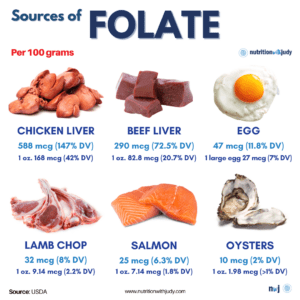

Folate animal-based food sources include liver, eggs, seafood, fish, meat, and dairy. But, why do we think that beef liver is the best carnivore option for folate? Great marketing, perhaps. If you need folate, chicken liver is actually a better source.
The Risks of Beef Liver for Folate
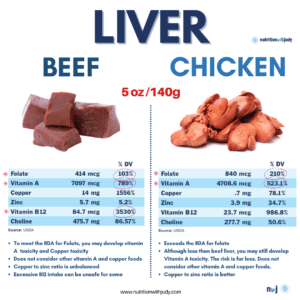

Beef liver has some folate but not nearly the amount people expect. You would need to consume 5oz of beef liver to get your daily folate levels. Here are the risks of consuming 5oz of beef liver daily:
- It contains too much vitamin A or retinol (789% of your daily value)
- It contains too much copper (1556% of your daily value)
- There’s a world of pro-copper advocates, but we’d say even for them, 1556% of your daily value is excessive and may lead to copper toxicity
- Excess copper and excess vitamin A can be toxic for pregnancies


While some nutrients have Tolerable Upper Limits (TULs) set by the Institute of Medicine, sometimes too much of a good thing can become bad. Vitamin A has a set TUL risk at 3000mcg. That means that anything above 2oz of beef liver has a TUL risk. The trade-off for folate is not worth the risk of excess vitamin A and copper levels. We hear vitamin A deficiency is common. It’s not– it’s so uncommon that food labels have removed vitamin A listings from packages.
Unusually high levels of copper have been found in women who’ve had a history of postpartum depression. Women who use copper IUDs, oral contraceptives, and hormone replacement therapy (HRT) have higher copper levels. Copper is closely related to estrogen metabolism. Estrogen causes copper retention and accumulation. Inversely, copper also raises estrogen. High levels of copper can deplete zinc, iron, and vitamin C. Vegetarian and vegan diets tend to be high in copper and low in zinc. Learn more about the dangers of copper toxicity here.
Chicken Liver vs. Beef Liver for Folate
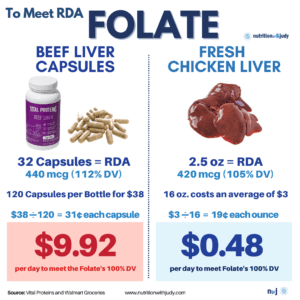

Chicken liver should still be consumed in moderation but when compared to beef liver, it contains less vitamin A, far less copper, a better zinc-to-copper ratio, a better balance of fat-soluble vitamins, and has a considerable amount of vitamin C.
Some desiccated organ companies have leveraged beef liver as a miracle supplement, touting it as the best source of folate. However, one bottle of 750mg of beef liver capsules contains 120 capsules which provide thirty 4-capsule servings. In order to meet the RDA for folate, you would need 32 capsules daily. An entire bottle will provide less than four servings of the RDA’s daily folate requirement. There are even desiccated organ companies that require six capsules for the same serving.
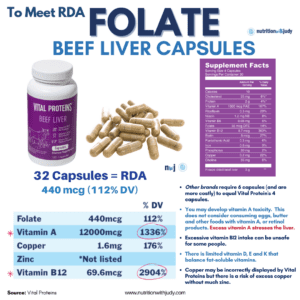

So, why are beef liver supplements being pushed as a rich source of folate?
Even if there were no risks with beef liver, we should be eating it naturally, not as processed supplements. The body has a natural biofeedback mechanism that may tell you that liver is disgusting. This may be a sign your body has had enough vitamin A, copper, or B12. If you’re taking it in supplement form, you’re not only paying a pretty penny but also bypassing the body’s warning cues.
So, why aren’t we hearing as much about the nutrient density of chicken liver?
You can’t really desiccate raw chicken liver, but you sure can with raw beef liver. That’s why fewer advertising dollars are being spent on chicken liver. In our research, we found only one Australia-based chicken liver supplement company.
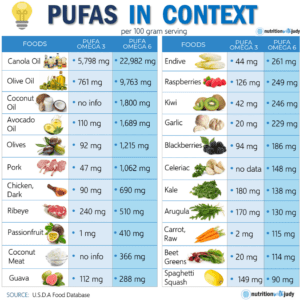

There have been many arguments in the carnivore space with some stating that one of the main reasons we should avoid pork and chicken is because of polyunsaturated fats (PUFAs). For a more in-depth read debunking the dangers of PUFAs in chicken, pork, and grain-fed meat, read our article here. Organ meats barely have any fats which makes PUFAs a non-issue anyway.
The Safer Alternatives for Beef Liver
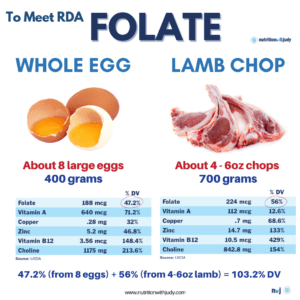

There are many nutrients that are often mentioned out of concern for those on a carnivore diet. While beef liver may contain all of these nutrients, it’s not worth the vitamin A and copper toxicity potential especially when there are other animal-based sources with equal or greater amounts:
- Folate: Opt for chicken liver which has a higher content or a lot of eggs and lamb
- Selenium: Chicken liver or shellfish has a higher content compared to beef liver
- Choline: Eggs have a higher content compared to beef liver
- Molybdenum: Dairy has a higher content compared to beef liver
- Vitamin A: Butter and eggs are a safer option
- Vitamin B12: Any other muscle meat
There’s no other nutrition that beef liver is high in. Nuance matters.
The Next Steps for Low Folate
If your folate is low, you may want to consider testing for homocysteine. Homocysteine is a type of amino acid that the body naturally makes. Vitamins B12, B6, and folate are broken down by homocysteine in order to create other chemicals that the body requires. However, high levels may signify a vitamin deficiency or a deeper root cause issue such as immune dysfunction. Left untreated, elevated homocysteine increases the risk of certain cardiovascular diseases and dementia. If your homocysteine is high and your folate is low, you may have an immune imbalance.
The Roles of MTHFR, Folate, and Homocysteine
An MTHFR gene test uses a sample of your blood to look for two very common changes in a gene called MTHFR. These changes in the gene are referred to as an MTHFR variant or MTHFR mutation. Genes are parts of DNA in your cells that are inherited from your parents– they carry information that controls how your body works and what you look like.
You have two copies of the MTHFR gene, one from each parent. The genes provide instructions for making the MTHFR protein. This protein helps your body use folate. To circle back, folate requires homocysteine in order to be broken down. Normally, your body breaks down homocysteine, so you have very little in the bloodstream. But if you have any mutations in an MTHFR gene, the MTHFR proteins your body makes may not process folate as well as they should. As a result, you may have increased levels of homocysteine in your blood.
Homocysteine is a marker of inflammation and some studies have linked too much homocysteine to artery lining damage. This may increase the risk of blood clots and certain cardiovascular diseases. Also, the risk of having a baby with NTD is slightly higher if homocysteine levels are high during pregnancy.
If your lab work shows low folate and high homocysteine, an MTHFR gene test is generally not required. That’s because the treatment for high homocysteine levels is the same regardless of whether it’s caused by an MTHFR mutation or not. In summary, if you aren’t healing on a long-term carnivore diet and still have low folate, you may want to check for environmental illnesses such as CIRS or other immune illnesses.
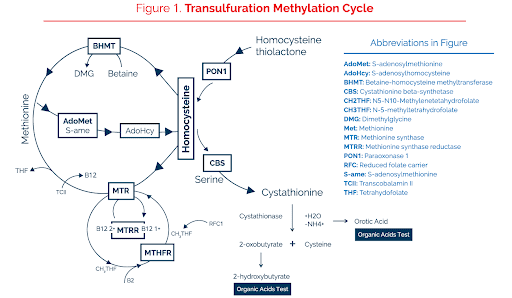

Pro-Tip: Check your homocysteine levels. If they are above 7 mcmol/L, you may need a methylated B supplement. For those with CIRS, we recommend against folic acid supplements as the nutrient may get stuck and not allow the MTHFR process to function properly. If there are roadblocks from a genetic mutation or inadequate enzyme cofactors that inhibit synthetic folic acid from being metabolized, this can lead to high concentrations of folic acid. Elevated levels of unmetabolized folic acid have been implicated in an increased risk of overall mortality. Instead, consider eating more animal-based foods with natural folate. However, in certain cases where CIRS patients who are clinically low in folate may need temporary supplementation; always speak to your trusted practitioner to see if you need folate supplementation.
If you and your trusted healthcare provider decide that you need folate supplementation and you’re uncertain if you have the MTHFR gene or not, always opt for a methylated folate supplement. Those with known MTHFR genes will always need a methylated form for their folate supplement as well.
Closing Thoughts On Folate for the Carnivore Diet
Unless you are pregnant, nursing, or have symptoms of folate deficiency, we wouldn’t worry about monitoring your numbers. If you’re interested in optimizing your nutritional intake, we always recommend eating a rainbow of meats. Opt for the safer carnivore choices listed above and be very mindful of how much and how often you consume beef liver. Since there are so many arguably-better nutrient-dense options compared to beef liver, we recommend only eating it if you enjoy it and in its natural form. Skip the expensive desiccated supplements and let food be thy medicine.
Work With Our Trusted Carnivore Diet Functional Nutritional Therapy Practitioners
The Nutrition with Judy practice is honored to be a trusted carnivore diet practitioner support serving clients from around the globe. We’re passionate about helping our clients achieve root-cause healing in order to lead the best quality of life possible that’s nearly symptom-free. Our team is dedicated to educating our community about the incredible benefits of the carnivore diet. We welcome you to explore our free resources and are always available to support you through personalized protocols. Our Symptom Burden Assessment (SBA) is the perfect starting point for discovering your root cause and is required to work with our team— you can learn more in-depth about this powerful tool here.
Start your root-cause healing journey today and contact us any time with any questions or concerns.
DISCLAIMER: This content is for educational purposes only. While we are board-certified in holistic nutrition and are nutritional therapy practitioners, we are not providing medical advice. Whenever you start a new diet or protocol, always consult with your trusted practitioner first.






Hélène
July 15, 2023 at 7:33 pmI actually love fresh cooked rare liver. I soak it in milk for 12-18 hrs n rinse thoroughly before frying it. It’s like a delicate steak. Absolutely delicious and I have to stop myself from eating half a pound or more! I tried freezing it cooked but it ruins it. Barely edible. So I only cook a pound and eat it over 2 days, once every couple mos. It’s a TREAT.
I was NOT brought up on it, my mom hated it. I just started trying to eat it 5 yrs ago n found out about soaking it a couple yrs ago. I’m 58 lol if I can like it anyone can!
Scott Jones
December 31, 2023 at 8:20 pmWhat’s your method of ‘frying’? I’d figure to just simmer it in a bit of water with a close-fitting lid over the liver while in the skillet.
The mil- soak sounds interesting,…. that makes think to use whey for the soak, rather than milk,,…. and btw, whey is made from raw-milk separation, which takes some days to separate. The solid portion of the separation can be eaten like a sort of cheese.
Anonymous mom
February 5, 2024 at 9:17 pmSoaking beef liver in milk prior to cooking is a must! Also helpful to slice the liver into thin pieces before frying. Slice so that there is just a little of the membrane on each slice. After that, we use a cast iron pan to fry it. No lid needed. We use a couple tablespoons of lard (bacon fat) in the pan. Cook on medium heat for about 5 minutes a side. Should be medium pink in the middle when done. Tastes great with caramelized onions on the side! This is coming from someone who absolutely hated liver. We eat it 1-2 times a week now. Kids look forward to it too. Chicken liver can be cooked the same. Just be sure to try to cut out as much of the gristle off the chicken livers first before frying.